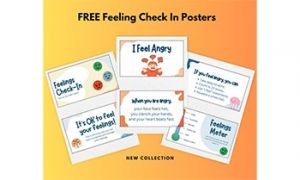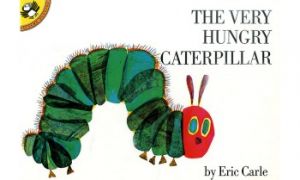

The structure and organisation of a learning environment can have immense impact on all aspects of a child’s development, ranging from physical and cognitive to social and emotional growth. The following article provides information on What Are Interest Areas and Their Benefits, Common Interest Areas, Guidelines For Planning Interest Areas and more.
Among the most challenging transitions in early childhood is when children start staying away from their parents for longer periods of time than they have been used to till then. For Educators caring for babies and toddlers who are having a particularly bad time leaving their parents, the following article provides information on What Is Separation Anxiety, Factors that Can Cause Separation Anxiety, Separation Anxiety Signs, How To Manage Separation Anxiety When To Seek Help and more.
Nursery rhymes provide a lot of learning opportunities to children. Nursery rhymes also play an important role in children's language skills by hearing sounds. It helps them to develop an ear for language Rhythms and rhymes also help to understand words syllables. The following article provides information on the Importance Of Nursery Rhymes, the Key Benefits and Strategies To Implement Nursery Rhymes.
A child-centred approach in an ECEC context involves giving children choices of learning activities, with the teacher acting as a facilitator of learning. It is a way of placing the child at the notional centre of the learning process in which they are active participants. The following article provides information on Child-Centred Curriculum, The Learning Environment, Educator's Role and more.
At its simplest, child-initiated learning is one that is chosen and started by the child. This type of learning is the purest form of child-centred learning and constitutes one of the most important approaches in the educator’s toolkit of teaching strategies. The following article provides information on the Characteristics and Benefits Of Child initiated Learning, How Educators Can Facilitate It In Their Settings and more.
Spontaneous play is exactly what it says – play that happens naturally, without any prior planning or being directed by anyone outside the play. In the early childhood context, spontaneous play is usually child-initiated and directed though it can include adults as well. The following article provides information on spontaneous play benefits and how educators can support it.
Emotional or physical distress can add to the challenges of caring for children in a service setting. Toddlers' brains are not yet developed to rationalize situations and regulate the emotions they feel. The following article provides strategies you can use to comfort and soothe a toddler.
Mixed-age groups refer to settings that bring together children aged three to five years old. Since children at different points in this age range may have different skills and abilities, working with mixed age groups may require service providers and educators to be more intentional in designing practices that meet the learning needs of all children. The following provides information on the Benefits Of Mixed Age Groups, Strategies For Working With Mixed Age Groups and more.
The EYLF explains literacy as the children’s “capacity, confidence and disposition to use language in all its forms”. Thus literary includes not only talking, listening, viewing, reading and writing but a range of modes of communication including music, movement, dance, storytelling, visual arts, media and drama. The following provides information on the Literacy Rich Environment, Characteristics Of A Literacy-rich Environment, Components Of A Literacy-rich Environment, Strategies and more!
NAIDOC Week 2022 starts from 3 July to 10 July. NAIDOC Week celebrations are held across Australia to celebrate the history, culture and achievements of Aboriginal and Torres Strait Islander peoples. The following provides Activities, Crafts, Songs and Resources to celebrate NAIDOC Week and incorporate ATSI Communities into your Early Childhood Service.
 As an Educator in Australia, your pay rate falls under the Children’s Services Award 2010. This award states the minimum amount that an employer can… Read More
As an Educator in Australia, your pay rate falls under the Children’s Services Award 2010. This award states the minimum amount that an employer can… Read More
 When working as a qualified Early Childhood Teacher (with a university degree) within a service, your rate of pay will come from the Educational Services… Read More
When working as a qualified Early Childhood Teacher (with a university degree) within a service, your rate of pay will come from the Educational Services… Read More
 When working as a Diploma Qualified Educator your pay rate is from the Children's Services Award 2010. This Award states your minimum rate of pay… Read More
When working as a Diploma Qualified Educator your pay rate is from the Children's Services Award 2010. This Award states your minimum rate of pay… Read More
 When working as a Cert 3 Qualified Educator, your pay rate is from the Children's Services Award 2010. This Award states your minimum rate of… Read More
When working as a Cert 3 Qualified Educator, your pay rate is from the Children's Services Award 2010. This Award states your minimum rate of… Read More
 Educational Leaders play a crucial role in their early childhood service by ensuring that the educational program aligns with best practices and supports the holistic… Read More
Educational Leaders play a crucial role in their early childhood service by ensuring that the educational program aligns with best practices and supports the holistic… Read More
 In early childhood education and care, ratios are more than a technicality—they are a frontline safeguard. Every child deserves responsive supervision, emotional connection, and developmental… Read More
In early childhood education and care, ratios are more than a technicality—they are a frontline safeguard. Every child deserves responsive supervision, emotional connection, and developmental… Read More
 Here’s a comprehensive Mobile Phone and Smart Watch Policy tailored for early childhood education and care (ECEC) services in Australia, aligned with the latest 2025… Read More
Here’s a comprehensive Mobile Phone and Smart Watch Policy tailored for early childhood education and care (ECEC) services in Australia, aligned with the latest 2025… Read More
 With the new national child safety reforms kicking in on 1 September 2025, early childhood services like yours have a real opportunity to lead the… Read More
With the new national child safety reforms kicking in on 1 September 2025, early childhood services like yours have a real opportunity to lead the… Read More
 The Sea of Fish Challenge is a national initiative that invites children, educators, families, and communities to create and display fish artworks as a symbol… Read More
The Sea of Fish Challenge is a national initiative that invites children, educators, families, and communities to create and display fish artworks as a symbol… Read More
 Across the early childhood education and care sector, educators are sounding the alarm: current staffing ratios are insufficient to deliver safe, meaningful, and developmentally appropriate… Read More
Across the early childhood education and care sector, educators are sounding the alarm: current staffing ratios are insufficient to deliver safe, meaningful, and developmentally appropriate… Read More

This article focuses on providing actionable strategies and practical techniques for educational leaders to effectively...
See more...
In early childhood settings, emotional literacy is foundational to well-being, learning, and relationships. The free...
See more...
The Very Hungry Caterpillar is a free story for Educators to download and read to...
See more...© 2009-2025 Aussie Childcare Network Pty Ltd. All Rights Reserved.

